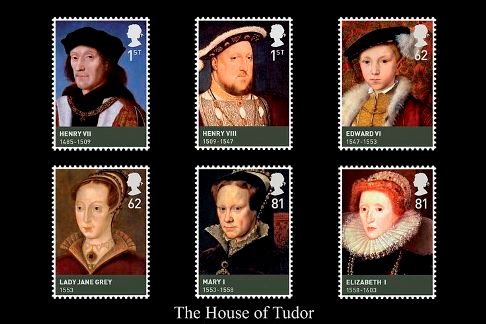My dear friends and readers!
I’m pleased to inform you that I’m currently having a book tour, in which I’m visiting various blogs and discussing Anne Boleyn for my new book “Between Two Kings”. Today, my new article was published in Sarah Bryson’s research blog (you can find it here).
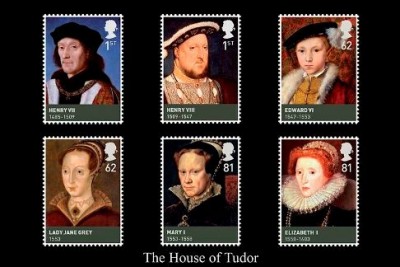
The Tudor dynasty came from humble origins and flourished for only three generations, reigning for only one hundred and eighteen years. Nevertheless, the Tudors are more popular than the Stuarts, the Plantagenets, or any other dynasty, and in English history no name probably has a deeper significance than that of “Tudor”.
Why are the Tudors so captivating? Why have they commanded so much attention through the centuries? And why do they have such a strong hold over historians, writers, fans, students, and everyday people from around the globe?
The victory at Bosworth Field signified the end of the Plantagenet dynasty and the rise of Henry Tudor to power.

When he became King of England by ‘right of conquest’ and solidified it by his marriage to Elizabeth of York, Henry seized command of a kingdom that had been torn apart by wars and bloodshed. He had to struggle to reverse the devastating effects of the Wars of the Roses, always remaining alert to the danger stemming from the surviving members of the House of York and several pretenders. During his reign, Henry centralized power in his hands at the expense of the nobles: he put an end to their privileges by reducing their wealth and power through the introduction of the sumptuary legislation and other reforms aimed at strengthening the monarchy.
I’ve never agreed with the historians who consider Henry VII a greedy miser who taxed the common people almost to death and who kept his wife impoverished, making her mend her clothes instead of buying new garments and gowns. We can learn a great deal about him if we study the very detailed accounts that he kept, which prove that he was quite generous to his wife, whom he loved dearly, and to his children. Henry had to deal with a treasury that was nearly bankrupt, but he was a shrewd businessman and managed to continuously accumulate wealth during his reign. There are many myths surrounding this king, who is so under-appreciated by many people.
It is really amazing that Henry Tudor came from obscurity, managed to defeat Richard III, founded a new royal house, restored royal authority both at home and abroad, and ensured the peaceful inheritance of the crown by Henry VIII.
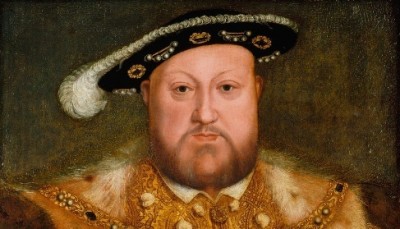
Henry VIII’s reign was revolutionary in many ways and was dominated by his obsessive need to produce a male heir, which Eric Ives fairly considers “the apogee of English personal monarchy”. His royal actions truly don’t have a parallel in the annals of English history.
In the religious area, the hallmarks of Henry’s reign were England’s break with the Roman Catholic Church and the beginning of the Reformation in England, which resulted from Henry’s failure to get an annulment of his first marriage to Catherine of Aragon from the pope. The Act of Supremacy of 1534 proclaimed Henry Supreme Head of the Church of England, and such absolute power corrupted him completely.
Henry’s matrimonial exploits are what people remember most about him. He expelled his first wife, Catherine, from the court and sanctioned the annulment of their marriage. He executed two wives – Anne Boleyn and Catherine Howard – and he divorced his fourth wife, Anne of Cleves. The ruthless treatment of his wives by Henry VIII was unprecedented; never before had a queen been executed on charges of adultery and high treason, and never before had a king dared sign a death warrant for an anointed queen, Anne Boleyn (unlike Anne, Catherine Howard wasn’t crowned). He was the first King of England who was ready to go to any lengths and to pay any price to get what he wanted, even executing a queen on trumped-up and ludicrous charges.
Henry’s reign oversaw the centralization of the state and an increase in bureaucracy and administration; the union of England and Wales was legally accomplished by a special act of Parliament in 1536 and in 1543. The birth of the Royal navy dates back to the reign of Henry VIII; the navy increased from just 5 ships to about 60 ships throughout his reign. He also created a great chain of coastal fortresses in the 1540s to defend England against possible foreign invasion.
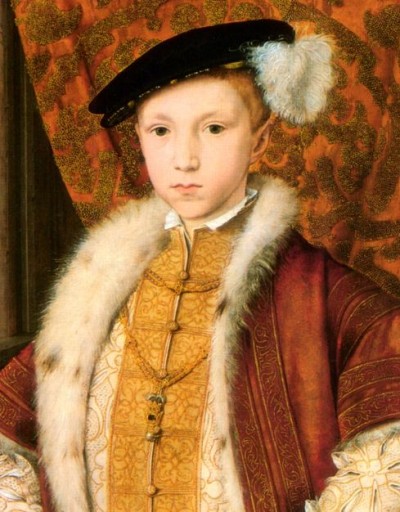
After Henry VIII’s death in 1547, the throne was inherited by Edward VI, his nine-year-old son with Jane Seymour. During his short reign, the nobles, including his uncles, Edward and Thomas Seymour, stubbornly tried to use the Regency to accumulate power into their own hands and to advance their personal interests at court. Religious developments and reforms were marked by the country’s movement towards Protestantism – the theology and liturgy of the Church became largely Protestant. The boy king was intelligent and well-educated, and he might have grown into a capable ruler, but God had other plans for him – Edward VI contracted tuberculosis and died in 1553.
Mary I was the first queen regnant in English history, excluding the tumultuous and short reigns of Empress Matilda and Lady Jane Grey. Her main goal was to restore Roman Catholicism in England.
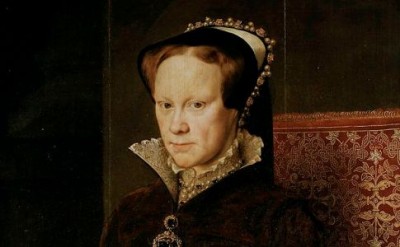
Upon her accession, Mary validated the marriage of her parents. Like her mother, Catherine, she was a staunch Catholic and was intensely pious throughout her life. She eagerly worked to halt the transformation of England into a Protestant country. Mary persecuted Protestants with a desperate and untiring enmity, and she had over 280 religious dissenters burned at the stake in the Marian persecutions. Because of this, she received the unflattering nickname ‘Bloody Mary’, but I don’t judge her harshly because she, like her father, was a child of her time, truly believing that she was taking the best course of action for her country and her people. Mary’s end was sad: she died childless at the age of forty two, without her husband, Philip II of Spain, by her side.
Henry VIII would have never imagined that Elizabeth, the daughter of Anne Boleyn, whom he killed in his quest to have a healthy son, would become a more competent and better ruler than any of his hypothetical sons could have been.
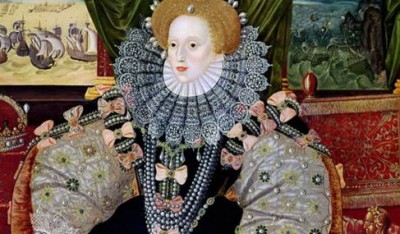
Elizabeth I’s reign was long, dynamic, and generally prosperous for England, even though it was not always peaceful. This time period was distinctive and glorious for England and the nation, and the Elizabethan era is often called the Golden Age. It was a period of widespread increases in literacy and great achievements in the arts. Although Elizabeth was never a major patron of the arts, great dramatists and poets such as William Shakespeare, Edmund Spenser, and Christopher Marlowe flourished, and the arts rapidly developed in England.
In religious matters, Elizabeth was much less radical than her half-siblings: she achieved the infamous Elizabethan Religious Settlement of 1559 in response to the division of nobles and common people between religious groups during the reigns of Henry VIII, Edward VI, and Mary I.
The bureaucratization and centralization of state systems achieved their peak during her reign. England was ruled by a very structured and complicated Elizabethan government that included national bodies (monarch, Privy Council, and Parliament), regional bodies (the Council of the North and Council of the Marches), county and community bodies, and the court system. Elizabeth’s most trusted ministers were Sir William Cecil, later Lord Burghley, who was succeeded by his son Sir Robert Cecil after his death in 1598.
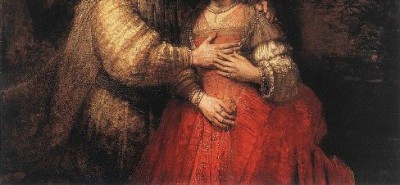
Elizabeth was pressured to enter into marriage by the nobles, but she continuously and steadfastly refused to marry and cultivated her image as the queen whose sense of duty and love for England and her people was dominant in her life. Elizabeth lost her mother at a very young age, and as she grew up, she learnt Anne’s tragic story; she also watched Henry VIII’s appalling treatment of his wives. Her keen intellect allowed her to make proper conclusions. Personally, I believe that she was affected by her mother’s tragic death and her father’s actions, which elicited in her a deep-rooted dislike for the concept of marriage. Henry VIII’s obsession with a male heir destroyed his own dynasty.
Elizabeth became the last Tudor monarch, and her death marked the beginning of the Stuart dynasty in England. All of the Tudor monarchs were unique in their own way, although the reigns of Henry VII, Henry VIII, and Elizabeth I might be considered by some of us as more significant and distinctive.

There are several other important achievements of the Tudor monarchs that make them stand out and create a lasting, deep impression on the audience. One of these achievements is the beginning of demographic data collection with the institution in 1538 of compulsory registrations of baptisms, marriages, and deaths in every parish. The secret service, or what today we call espionage, had its roots in the Tudor era; to guarantee Elizabeth’s safety, Sir Francis Walsingham’s experienced agents gathered intelligence in England and abroad.
The Tudor monarchs command our attention because they changed England and shaped modern Britain in so many ways. Their incredible personal dramas captivate us because their lives were so theatrical and unlike our own. If the Tudors hadn’t ascended to the throne in 1485, the UK as we know it today would not exist.

Among the Tudor monarchs, my primary interest lies in the reign of Henry VIII with a focus on his romance with Anne Boleyn as I imagine and re-imagine her life over and over again, but perhaps one day I will write a book where I would try to re-imagine the history of the Tudor dynasty starting with Henry VII’s accession to the throne.

